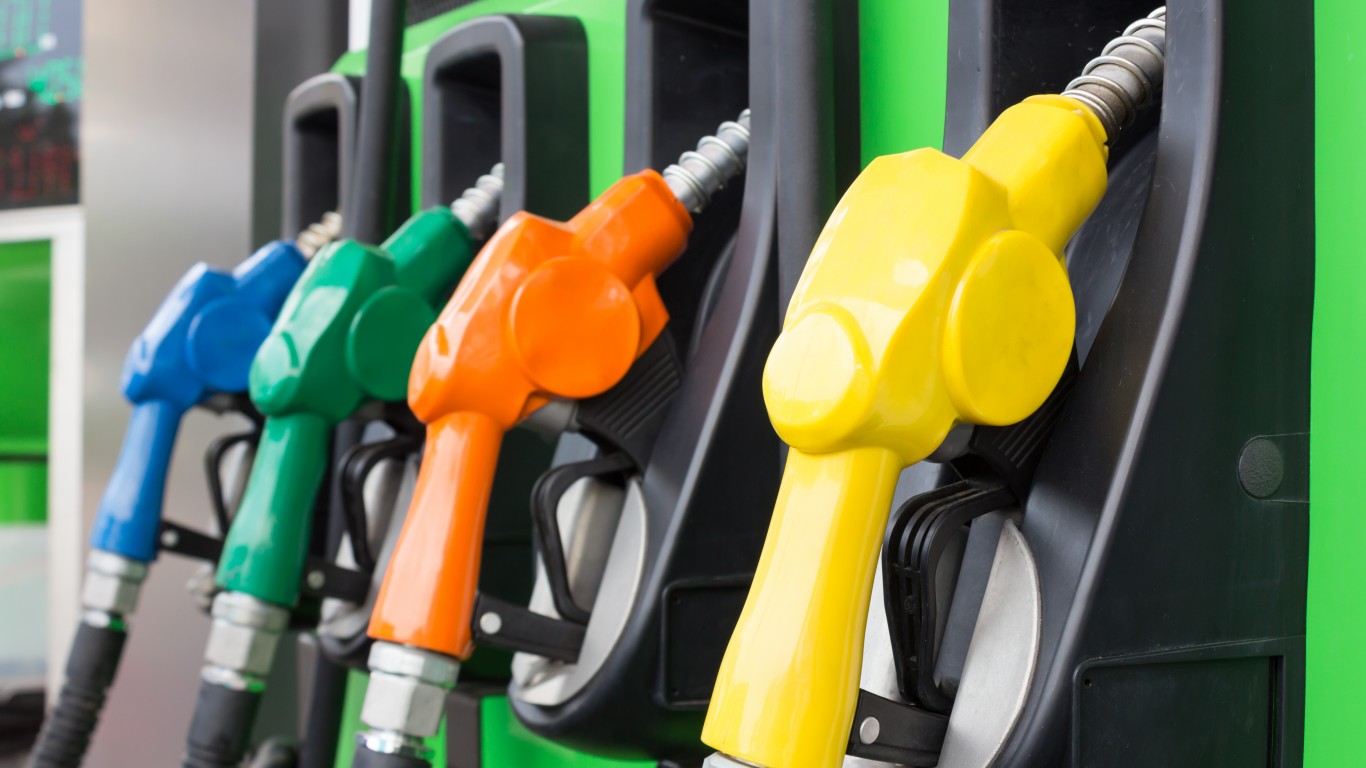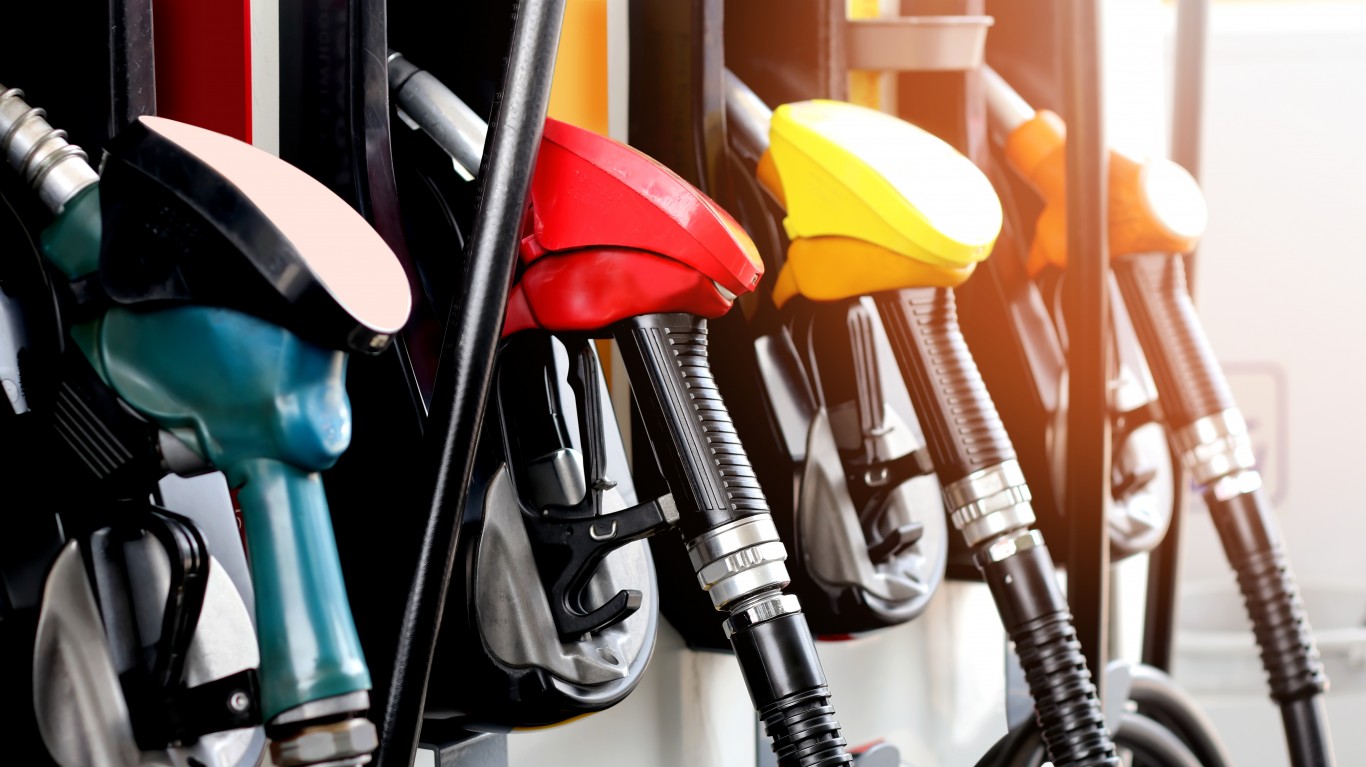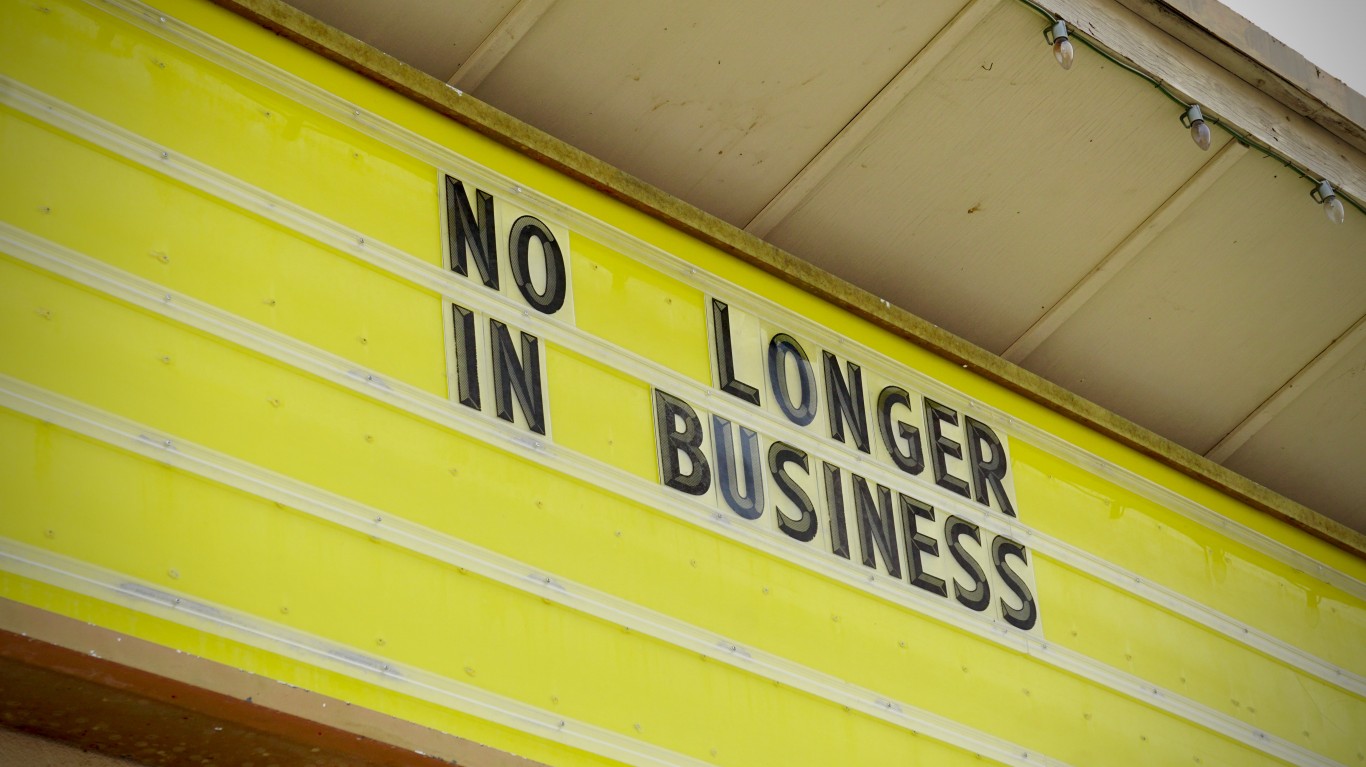
24/7 Wall St. Insights
- Economists believe a recession is coming early next year.
- Gas prices are about the only break Americans get from rising costs.
- Also: Two dividend legends to hold forever.
Economists increasingly believe a recession is coming early next year. Sales at dollar stores have been slow. BurgerFi went bankrupt, and sales at McDonald’s have been crippled. The management at the country’s largest food chain blamed a tight-fisted consumer. Credit card debt hit $1.14 trillion in the second quarter, which is a record. Finally, the cost of owning or renting a house has skyrocketed. Shelter expenses rose 5.2% in the consumer price index for August.
One significant expense for most households plunged. Gasoline prices fell 10.3%.
Gas accounts for close to 3% of household expenses. For low-income households, that can be closer to 5%. Those are probably the same households that can no longer afford McDonald’s. When these people’s finances fall apart, it is called a “selective recession.” And that can spread to other income tiers. Consumer spending is over two-thirds of gross domestic product (GDP).
To some extent, the American economy runs on cars and light trucks—almost 70% of Americans who travel for work drive. For these people, food, shelter, and transportation often dominate household expenses.
When gas prices reached above $5 a gallon in 2022, primarily because of the early stages of the Russian invasion of Ukraine, some economists believed that would stretch the consumer to the point that discretionary spending would disappear and, with it GDP growth. If gas prices continue to drop, consumer stress should drop as well.
The Average American Knows We’re in a Recession
In 20 Years, I Haven’t Seen A Cash Back Card This Good
Credit card companies are at war, handing out free rewards and benefits to win the best customers. A good cash back card can be worth thousands of dollars a year in free money, not to mention other perks like travel, insurance, and access to fancy lounges. Our top pick today has pays up to 5% cash back, a $200 bonus on top, and $0 annual fee. Click here to apply before they stop offering rewards this generous.
Flywheel Publishing has partnered with CardRatings for our coverage of credit card products. Flywheel Publishing and CardRatings may receive a commission from card issuers.
Thank you for reading! Have some feedback for us?
Contact the 24/7 Wall St. editorial team.


